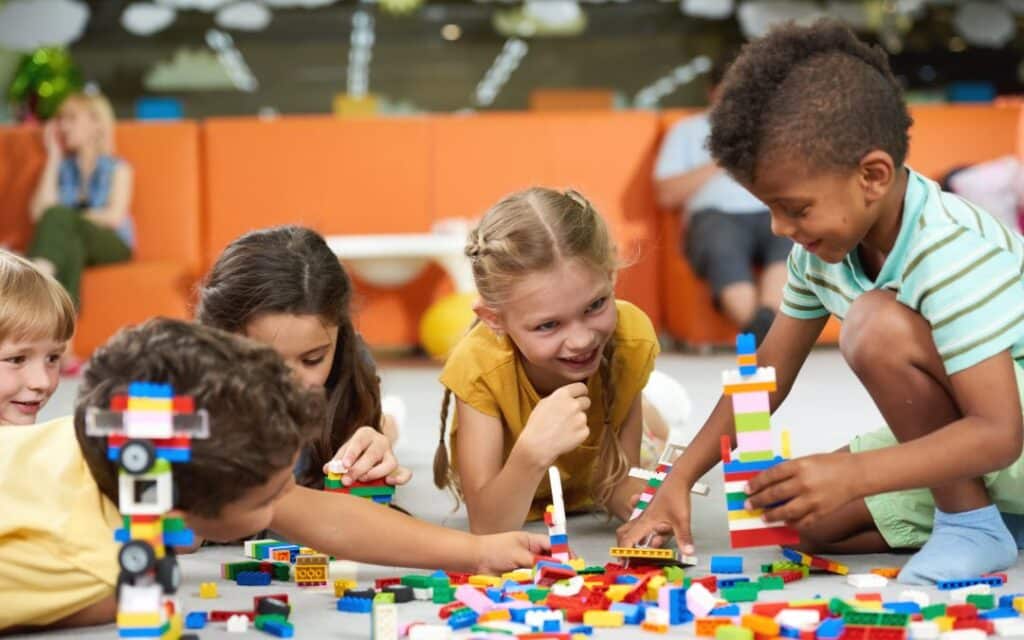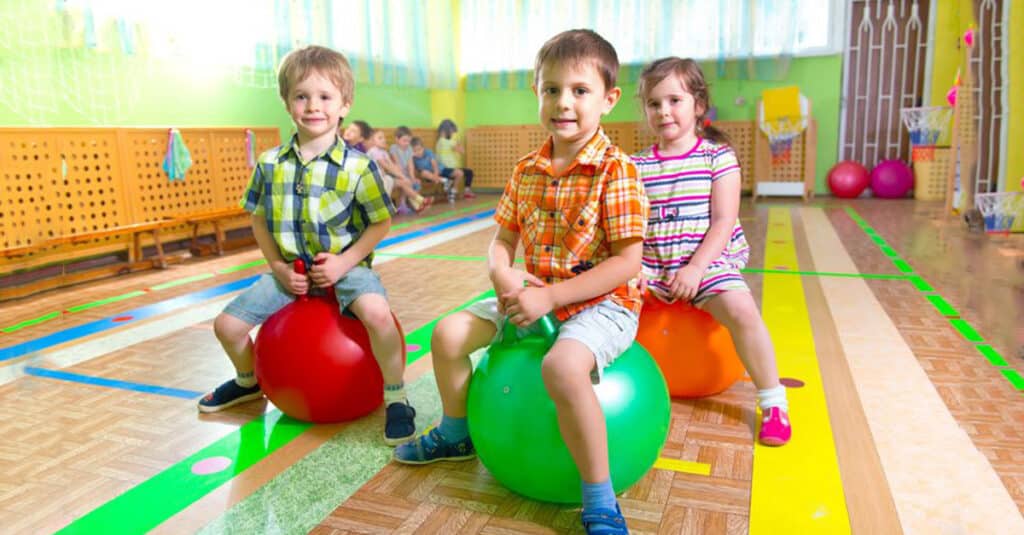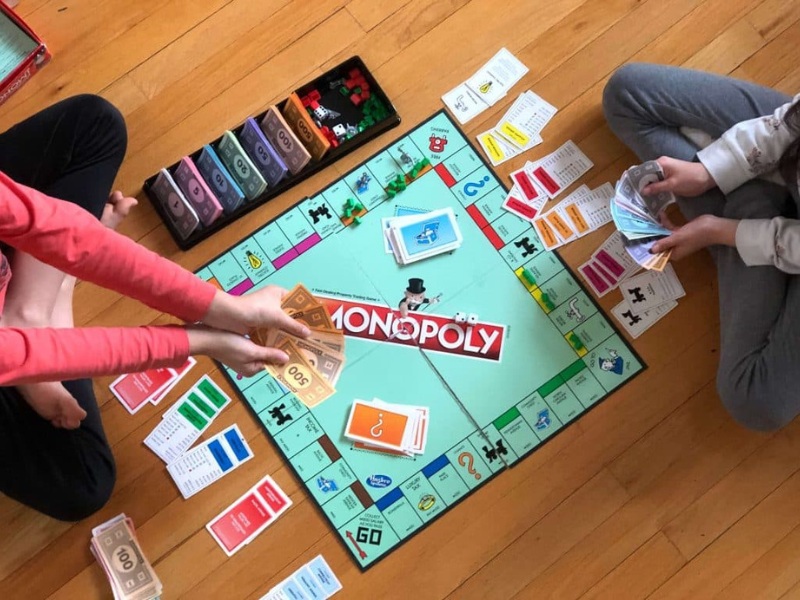
Play is an essential part of childhood, serving as the primary means through which children learn about themselves, their environment, and the people around them. Toys, as instruments of play, hold a significant role in a child’s development. They are not merely tools for keeping children occupied; they are vital for cognitive, emotional, social, and physical development. In this blog, we will explore the importance of play and how various types of toys contribute to different aspects of child development.
Cognitive Development

Cognitive development refers to the growth of a child’s ability to think and understand. This includes skills such as problem-solving, memory, and decision-making. Toys play a crucial role in stimulating cognitive development in several ways:
1. Building Blocks and Puzzles
Building blocks and puzzles are excellent for enhancing a child’s problem-solving skills. They require children to think critically and plan ahead. For example, when a child works on a puzzle, they must recognize shapes, sizes, and how pieces fit together. This type of play improves spatial awareness and fine motor skills, and enhances their ability to focus and complete tasks.
2. Educational Toys
Toys such as alphabet blocks, number games, and science kits are designed to make learning fun. They introduce children to basic concepts of math, science, and language in an engaging way. Interactive electronic toys that respond to a child’s actions also help in teaching cause-and-effect relationships, further stimulating cognitive development.
Emotional Development

Emotional development is about understanding and managing emotions. Through play, children learn to express themselves, cope with feelings, and develop empathy. Toys are a significant part of this process:
1. Dolls and Action Figures
Playing with dolls and action figures allows children to act out various scenarios and emotions. This kind of imaginative play helps them explore different roles and understand diverse perspectives. It is a safe way for children to express their fears, anxieties, and joys, contributing to emotional resilience.
2. Comfort Toys
Many children have a favorite stuffed animal or blanket that provides comfort and security. These comfort toys can help children manage stress and transition during challenging times. They offer emotional support and help children develop coping mechanisms for dealing with change and uncertainty.
Social Development

Social development involves learning how to interact with others, form relationships, and navigate social norms. Toys and play are fundamental in teaching these skills:
1. Board Games
Board games are excellent for teaching children about rules, taking turns, and cooperation. They also encourage communication and problem-solving in a social context. Through playing board games, children learn about winning and losing gracefully, an essential aspect of social interaction.
2. Group Play Toys
Toys such as play kitchens, tool sets, and dress-up costumes encourage group play. When children engage in these activities together, they learn to negotiate roles, share, and collaborate. These interactions are crucial for developing social skills and building friendships.
Physical Development
Physical development involves the growth and strengthening of a child’s body. Play that encourages physical activity is vital for developing motor skills and overall health:
1. Outdoor Toys
Outdoor toys such as bicycles, balls, and climbing structures encourage children to be active. These toys help develop gross motor skills, including running, jumping, and balancing. Physical play is essential for maintaining a healthy weight, improving cardiovascular health, and building muscle strength.
2. Fine Motor Skills Toys
Toys that require precise movements, such as threading beads, drawing, or playing with clay, help develop fine motor skills. These activities strengthen the small muscles in the hands and fingers, preparing children for tasks such as writing and using tools.
Creativity and Imagination

Creativity and imagination are vital components of a child’s development. They allow children to explore new ideas, think innovatively, and solve problems creatively:
1. Arts and Crafts Supplies
Providing children with materials like crayons, paint, and clay encourages them to express themselves creatively. These activities not only develop fine motor skills but also stimulate imagination and artistic expression. Creative play is a critical outlet for children to explore their inner worlds and convey their thoughts and feelings.
2. Pretend Play
Pretend play toys, such as play kitchens, doctor kits, and costumes, allow children to create and inhabit imaginary worlds. This type of play is crucial for cognitive flexibility and problem-solving skills. It helps children understand different perspectives and fosters empathy and emotional intelligence.
Language Development
Language development is another critical area where play and toys have a profound impact. Through interactive play, children learn new words, improve their understanding of language, and develop communication skills:
1. Storybooks and Interactive Books
Reading storybooks and using interactive books with sounds and buttons can significantly enhance a child’s vocabulary and comprehension skills. These activities also promote a love for reading and learning.
2. Role-Playing Toys
Role-playing toys, such as telephones, kitchens, and toolsets, encourage children to engage in dialogues and narrate stories. This type of play helps in developing conversational skills and understanding the nuances of language.
Conclusion
In conclusion, toys are much more than mere objects for entertainment. They are powerful tools that play a vital role in a child’s holistic development. From cognitive and emotional growth to social skills and physical health, toys contribute to every aspect of a child’s development. Providing children with a variety of toys and encouraging different types of play can help them develop the skills they need to thrive in their ever-changing world.
As parents, educators, and caregivers, it is essential to recognize the importance of play and thoughtfully select toys that support and enhance a child’s development. By doing so, we can ensure that children not only have fun but also gain valuable skills that will benefit them throughout their lives.

